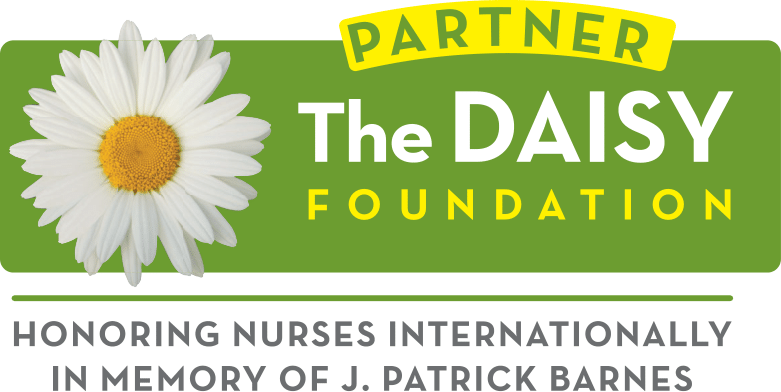Nursing up-credentialing
There are many paths for nurses to take to achieve their professional goals. Determining your desired role or specialization will help point you in the right direction. There are many paths that lead to advanced practice for nurses unsure of what specialization to choose. The first step is to determine what you want your day-to-day experience to look like by understanding role responsibilities and the required education level, licensure exams, and state licensure.
Professional and personal commitments, finances, and geography all play a role in determining which nursing career path is attainable and right for you. Read on to gain insights on which degree is the most appropriate for you based on your career aspirations and professional goals.
Types of nursing degrees
A career in nursing typically starts with earning an associate or bachelor's degree, sitting for and passing the National Council Licensure Examination (NCLEX-RN), and becoming a registered nurse (RN).
RNs looking to then become advanced practice nurses typically pursue a Master of Science in Nursing (MSN) program and may become a nurse practitioner (NP), but this isn't the only pathway to advanced practice. Nurses who desire to pursue graduate education have a variety of programs available to them. Some options include:
- Direct bachelor to doctoral programs resulting in either a terminal practice-based Doctor of Nursing Practice (DNP) degree or terminal research-focused nursing PhD
- Master’s degree programs that lead to specialized practice roles
- Programs specifically designed for entering academia and becoming nursing faculty
Associate Degree in Nursing (ADN)
Not a program offered by ATSU
Bachelor of Science in Nursing (BSN)
Not a program offered by ATSU
Associate Degree in Nursing
Associate Degree in Nursing (ADN) or Associate of Science in Nursing (ASN) programs prepare students to become licensed as a registered nurse. This is a two-year degree program and the minimum amount of schooling required to enter the profession. Graduates of ADN programs are eligible to sit for the NCLEX-RN exam, which must be passed to be licensed by the state.
Bachelor of Science in Nursing
Bachelor of Science in Nursing (BSN) programs are usually four-year degree programs that are also meant to prepare students to sit for the NCLEX-RN exam. Many hospitals and healthcare settings require RNs to hold a bachelor’s degree in nursing.
BSN to DNP*
Almost two decades ago the American Association of College of Nursing (AACN) endorsed a position statement naming the Doctor of Nursing Practice as the most appropriate degree for advanced practice registered nurses (APRNs). As a clinically focused terminal degree for the nursing profession, DNP programs help nurses develop a specialty practice that influences healthcare outcomes at the individual and population level.
To become an APRN, nurses must hold a master’s or doctorate for licensure. Since then, there’s been a proliferation of fast-track programs leading directly from the bachelor’s level to doctoral degrees in nursing. Generally taking approximately five years to complete, these programs include intense clinical instruction with the inclusion of specialized experiences.
Benefits of earning the DNP from A.T. Still University (ATSU) include the acquisition of advanced competencies in leadership, quality improvement, collaborative practice, health policy, information systems and population health within an ethical framework.
* ATSU does not offer a BSN to DNP program.
Master of Science in Nursing (MSN)
Not a program offered by ATSU
Doctor of Nursing Practice (DNP)
Master of Science in Nursing
Master of Science in Nursing (MSN) programs are advanced practice graduate degrees for nurses looking to become advanced practice registered nurses. These programs help RNs develop their clinical leadership skills and enable advancement into a specialty area or certification in advanced practice roles. RN licensure is required for MSN programs. These programs also require clinical hours.
MSN programs are some of the most common graduate education options for nurses. MSN degree programs include direct entry and accelerated MSN programs, RN to MSN bridge programs, BSN to MSN programs, online MSN degrees, and dual master’s degree options.
MHA to DNP
Earning dual degrees in MSN and a Master of Healthcare Administration (MHA) or Master of Public Health (MPH) is also an option for nurses looking to become APRNs. While these programs aren’t as common, they’re optimal for nurses who desire to work on the administrative side of healthcare or become leaders in public health.
ATSU’s Doctor of Nursing Practice program provides students with the foundation to become an influential nursing leader by preparing graduates who are competent and engaged leaders in a variety of healthcare organizational systems, effective decision-makers through interprofessional collaborations, and prepared to influence positive healthcare outcomes through evidence-based practice.
Doctor of Nursing Practice
Doctor of Nursing Practice (DNP) programs are terminal practice-based degrees designed to prepare RNs to attain advanced practice with a focus on advanced competencies in leadership, evidence-based practice, quality improvement, and practice-based research.
A.T. Still University’s College of Graduate Health Studies (ATSU-CGHS) offers an online Doctor of Nursing Practice program that develops nursing leaders who are prepared to influence positive healthcare outcomes through evidence-based practice and innovative healthcare system solutions. With a focus on leadership, the DNP prepares nurses with advanced competencies in quality improvement, collaborative practice, health policy, information systems, and population health within an ethical framework.
DNP curriculum features leading edge information taught by expert faculty across various advanced practice specialty fields. Courses include healthcare economics and financial management, quality improvement and performance excellence, health policy, interdisciplinary communication and collaboration, evidence-based practice, advocacy, and change management.
The nursing practice doctorate requires clinical practice hours, which are meant to be completed where you are located. Created with optimal flexibility in mind, this is the nursing doctorate of choice for practicing nurses.
DNP vs. PHD
Both considered terminal degrees for the nursing profession, the DNP is the clinical nursing practice doctorate while the nursing PhD is a research doctorate. A doctorate in nursing practice is focused on developing leadership and evidence-based practice in healthcare settings, while a PhD in nursing seeks to develop nurses who desire to conduct research or enter academia.
Learn more about the differences between a PhD in nursing and the DNP.
Nursing career pathways
There are many paths nurses can take to achieve their career goals. Nurses interested in becoming advanced practice registered nurses typically first pursue a specialty program at the master's or doctoral level, before sitting for specialty-specific licensure. Below are some common specialty pathways advanced practice nurses can take.
- To become a Nurse Practitioner (NP), you must first pass the NP certification exam, and then apply for NP state licensure.
- To become a Clinical Nurse Specialist (CNS), you must first pass the CNS certification exam, and then apply for CNS state licensure.
- To become a Certified Registered Nurse Anesthetist (CRNA), you must first pass the CRNA certification exam, and then apply for CRNA state licensure.
- To become a Certified Nurse Midwife (CNM), you must first pass the CNM certification exam, and then apply for CNM state licensure.
- To become a Clinical Nurse Leader (CNL), you must pass the CNL certification exam. Becoming a CNL does not require acquiring state licensure.
What can I do with a nursing doctorate?
Nurses educated at the doctoral level are sought after for leadership roles, healthcare administration, policymaking, and more. For aspiring nursing leaders, earning a doctorate in nursing will help you foster the skills and knowledge needed to step into these roles.
Career outlook for nurses is steadily growing. According to the Bureau of Labor Statistics, employment of nurses is projected to grow much faster than the average for all occupations through 2028.
Career advancement
RNs who attain a doctorate in nursing practice are suited for the following advanced practice roles:
- Chief operating officer, president, or vice president of a healthcare system
- Chief nursing officer or assistant chief nursing officer of a healthcare facility
- Clinical researcher
- Healthcare insurance or association administrator
- University administrator or faculty
- Healthcare consultant
- Healthcare business owner
- Health policy director/advisor/consultant
RN to doctor of nursing
Many nurses earn their BSN before becoming an RN. Those who wish to advance further typically earn an MSN to become advance practice registered nurses. Those who are looking to step into further leadership roles seek advanced practice programs, such as the DNP. In addition to enhancing clinical practice, DNPs are perfect candidates for executive roles, advanced clinical educators, policymakers, and more.
Whether your career goals are to advance to an executive position or to enrich your current practice, the online Doctor of Nursing Practice program at ATSU will provide you with the foundation necessary to become an influential nursing leader.
Resources:
https://www.aacn.org/
https://ojin.nursingworld.org/MainMenuCategories/ANAMarketplace/ANAPeriodicals/OJIN/TableofContents/vol132008/No3Sept08/CareerEntryPoints.html
https://www.registerednursing.org/degree/adn/
https://www.ncbi.nlm.nih.gov/pmc/articles/PMC7161484/
https://nursinglicensemap.com/blog/nursing-career-pathways/
https://www.bls.gov/careeroutlook/2020/article/careers-for-nurses-opportunities-and-options.htm

Wondering if the DNP is the perfect fit for you?
ATSU-CGHS offers a variety of doctoral programs that meet your professional needs and career goals.
Honoring Exceptional Nurse Educators

DAISY is an acronym for Diseases Attacking the Immune System. The DAISY Foundation was formed by the family of J. Patrick Barnes, who died at age 33 of complications of Idiopathic Thrombocytopenic Purpura (ITP), an auto-immune disease, in 1999. Touched by the care and compassion of the nurses who took care of him, his family developed recognition programs to honor and celebrate direct care nurses, nursing faculty, and nursing students.
The DAISY Nurse Educator Award honors a selected nurse educator for their inspirational influence. ATSU-CGHS nursing faculty members advance the skills of graduate students and keep clinicians updated on evidence-based practice. The Award is merit-based and honors excellent teaching skills and leadership and a commitment to instilling strong patient care and compassion in their students.
Rising stars: ATSU’s newest graduates prepare to shape the future of healthcare
Posted: September 25, 2024
The moments in between: ATSU student-submitted photos capture favorite moments along their academic journey
Posted: September 20, 2024
The AI generation: ATSU integrates the latest technologies to educate healthcare professionals of the future
Posted: July 17, 2024
ATSU-CGHS dean appointed to Exercise is Medicine Underserved and Community Health committee
Posted: July 10, 2024
ATSU’s Doctor of Education in Health Professions program opens new career paths for educator
Posted: June 21, 2024
ATSU’s Doctor of Health Administration program helping student stand out, take next career step
Posted: June 20, 2024
ATSU Master of Science in Kinesiology program provides confidence, skills, expertise
Posted: June 12, 2024
ATSU’s Doctor of Health Administration program preparing student for leadership roles
Posted: June 11, 2024